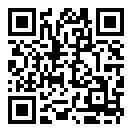Keynote: George E. Lewis
Is our machines learning yet? Machine Learning’s Challenge to Improvisation and the Aesthetic
Improvisations by creative musical machines are now often indistinguishable from those created by humans. For many, this is a truly unsettling prospect, not least because musical creation can no longer be portrayed as the exclusive and ineffable province of designated superpeople. However, the advent of musical machine learning has fully corroborated my observation from 2000 that interactions with software-based musical systems tend to reveal characteristics of the communities of thought and culture that produced them. These communities include whoever and whatever the machine and its programmers happen to be learning from, whether it be Google’s early ideology of using machine learning to create “compelling” art and music, or recent public misadventures involving racism in face recognition engines. These issues are not just about the machine, but about the machine as part of a social world, a lesson that interactive musical computing first absorbed in the 1980s. If algorithms that “listen” to a corpus of musical behavior and “learn” to produce musical structures based on that behavior are ultimately reproducing embedded cultural values, how can we create new musical and cultural values from an existing corpus? Perhaps nonmusical uses of machine learning, such as the self-driving car, can move us away from genre, aesthetics, and autonomous universalisms, to realize in machine improvisation John Stuart Mill’s observation that “Human nature is not a machine to be built after a model, and set to do exactly the work prescribed for it, but a tree, which requires to grow and develop itself on all sides, according to the tendency of the inward forces which make it a living thing.”
